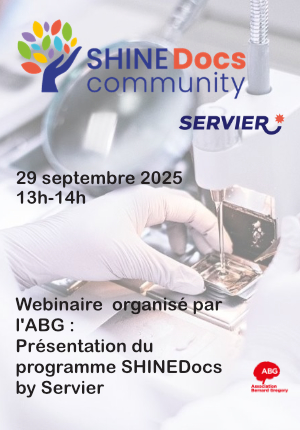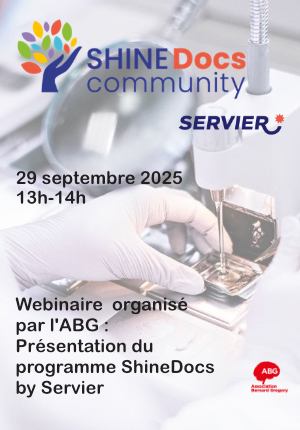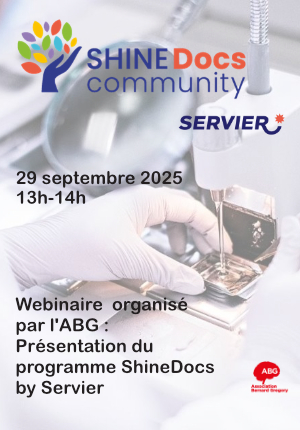SD-25104 PHD IN DROUGHT IMPACTS ON FOREST ECOSYSTEM FUNCTIONING THROUGH MULTI-SENSOR SYNERGY
| ABG-133282 | Stage master 2 / Ingénieur | 48 mois | Negotiable |
| 02/09/2025 |

- Ecologie, environnement
Établissement recruteur
Site web :
The Luxembourg Institute of Science and Technology (LIST) is a Research and Technology Organization (RTO) active in the fields of materials, environment and IT. By transforming scientific knowledge into technologies, smart data and tools, LIST empowers citizens in their choices, public authorities in their decisions and businesses in their strategies.
To address the urgent societal need for science-based management recommendations for forests under increasing pressure, and to leverage on the fast-developing expertise in multi-disciplinary forest research in Luxembourg, LIST, in collaboration with the University of Luxembourg and the Luxembourg Institute of Socio-Economic Research, has formed a dedicated doctoral training unit (DTU) on “Forest function under stress” (FORFUS). It consists of 4 inter-linked research clusters, focusing on below-ground processes, tree and canopy processes, remote sensing observations, and prediction and valuation of forest functions, providing a holistic view on forests as complex systems. See the project website to find out more about the FORFUS doctoral training unit: https://www.list.lu/en/research/project/forfus.
Do you want to know more about LIST? Check our website: https://www.list.lu/
Your LIST benefits
- An organization with a passion for impact and strong RDI partnerships in Luxembourg and Europe that works on responsible and independent research projects
- Sustainable by design, empowering our belief that we play an essential role in paving the way to a green society
- Innovative infrastructures and exceptional labs occupying more than 5,000 square metres, including innovations in all that we do
- An environment encouraging curiosity, innovation and entrepreneurship in all areas
- Personalized learning programme to foster our staff’s soft and technical skills
- Multicultural and international work environment with more than 50 nationalities represented in our workforce
- Diverse and inclusive work environment empowering our people to fulfil their personal and professional ambitions
- Gender-friendly environment with multiple actions to attract, develop and retain women in science
- 32 days’ paid annual leave, 11 public holidays, 13-month salary, statutory health insurance
- Flexible working hours, home working policy and access to lunch vouchers
Description
Temporary contract | Up to 48 months (14+22+12 months) | BelvauxAre you passionate about research? So are we! Come and join us
How will you contribute?
Earth Observation (EO) science is a powerful way for assessing forest stress and disturbances over large areas and to monitor forest vitality over time. This research uses remote sensing technologies together with physical models and machine learning methods to investigate how ecosystem water stress and drought disturbances affect relevant forest ecosystem functioning at various scales. It will enable advanced assessment of forest vitality and the spatio-temporal propagation of forest stress in relation to biotic abiotic factors and management practices. The water use efficiency (WUE) and light-use efficiency (LUE) are critical metrics linking the water and carbon cycles of forests. A comprehensive understanding of the limits of these variables and their response to drought stress is lacking but could be potentially used to manage the carbon and water trade-offs of forests under different environmental conditions.
This particular project aims at the following research objectives:
O1: Understanding the impact of drought on seasonal and interannual variation of satellite multi-spectral signatures, LUE, WUE, canopy conductance (gc), and associated forest ecosystem functioning? O2: Integrating multisensor synergy with environmental variables to develop LUE, WUE and canopy conductance function for diagnostic mapping of forest ecosystem functioning metrics.
We will apply time-series analysis to investigate seasonal and interannual variability of spectral signatures in different bands (Planet, Sentinel-3, Sentinel-2, ECOSTRESS, Landsat, SMAP), which will be linked to LUE-WUE and gc information from multiple eddy covariance sites. We will subsequently use information theory and (or) wavelet analysis to link this data with environmental variables and identify their principal drivers. Functional forms of LUE-WUE and gc will be developed using synthetic experiments through soil-canopy reflectance, thermal infrared, & surface energy balance modelling (e.g., SCOPE). Model-data integration methods will be used to derive LUE-WUE and gc functions over forests and perform validation in drought and normal years.
This position is part of the doctoral training unit FORFUS (https://www.list.lu/en/research/project/forfus), associated with the FORLUX (https://www.list.lu/en/research/project/forlux) research project, both of which together will include 13 doctoral candidates and 4 postdoctoral researchers. We seek candidates with a strong potential to excel in a collaborative and multidisciplinary environment, and use their skill for the benefit of society in the long term.
You will follow the rules and curriculum set out by the Doctoral School in Science and Engineering (https://www.uni.lu/research-en/doctoral-education/dsse) and engage in courses and activities organised by the doctoral training unit FORFUS.
Profil
Is Your profile described below? Are you our future colleague? Apply now!
Education
- You hold a MSc or equivalent in Environmental Science, Forestry, Civil and Environmental Engineering, Remote Sensing or a related discipline in the Geosciences
Experience and skills
- You have a strong interest in the land-atmosphere interaction, evapotranspiration and photosynthesis, biometeorology and climate. A background in remote sensing and ecohydrology would be ideal but is not required. Experience in big data analysis, data science methods, Machine learning and/or artificial intelligence would be a strong asset.
- You enjoy both modeling, model-data integration, data analysis and handling large eddy covariance flux database. Scripting and programming experience are essential.
- You like working in a team, explaining and presenting research ideas and results.
Language skills
- Fluency in English, both oral and written.
Prise de fonction
Vous avez déjà un compte ?
Nouvel utilisateur ?
Vous souhaitez recevoir nos infolettres ?
Découvrez nos adhérents
 ASNR - Autorité de sûreté nucléaire et de radioprotection - Siège
ASNR - Autorité de sûreté nucléaire et de radioprotection - Siège  Aérocentre, Pôle d'excellence régional
Aérocentre, Pôle d'excellence régional  Institut Sup'biotech de Paris
Institut Sup'biotech de Paris  CESI
CESI  Généthon
Généthon  CASDEN
CASDEN  Groupe AFNOR - Association française de normalisation
Groupe AFNOR - Association française de normalisation  MabDesign
MabDesign  TotalEnergies
TotalEnergies  ADEME
ADEME  Laboratoire National de Métrologie et d'Essais - LNE
Laboratoire National de Métrologie et d'Essais - LNE  ONERA - The French Aerospace Lab
ONERA - The French Aerospace Lab  MabDesign
MabDesign  ANRT
ANRT  SUEZ
SUEZ  PhDOOC
PhDOOC  Nokia Bell Labs France
Nokia Bell Labs France  Ifremer
Ifremer  Tecknowmetrix
Tecknowmetrix





